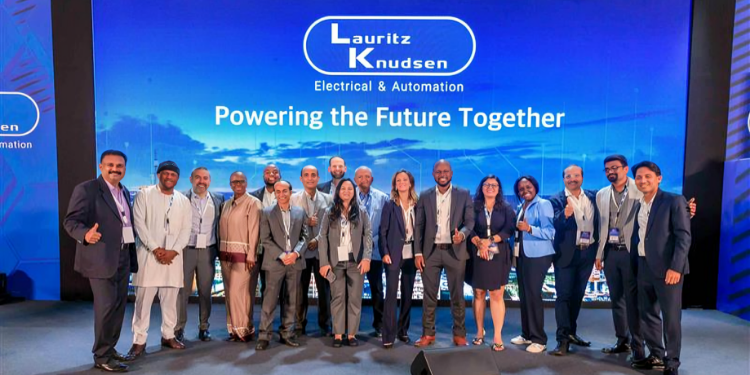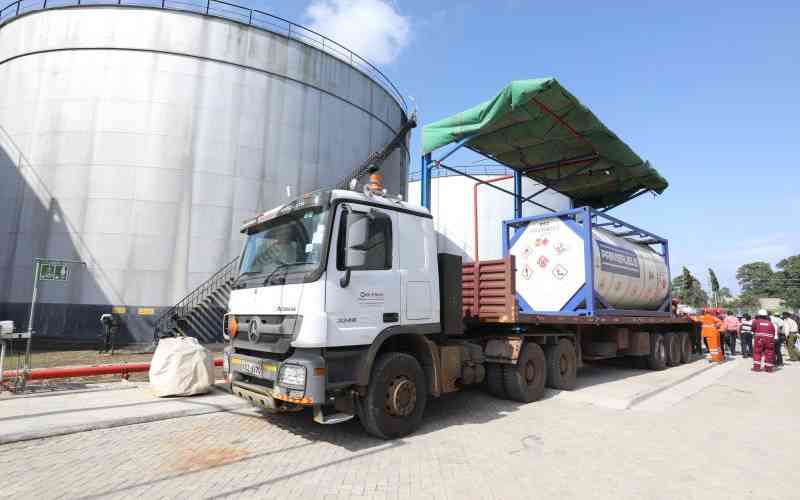Lauritz Knudsen Electrical & Automation (LK) officially launched operations in Kenya in mid-August 2025, unveiling a Nairobi hub and a product lineup pitched at smart infrastructure, industrial automation, EV charging and energy management. This marks the company’s first formal entry into the African market and positions Kenya as a strategic gateway for continental expansion.
The company held a high-profile launch event in Nairobi, where its leadership announced a Kenya-first strategy that will combine low-voltage and medium-voltage distribution equipment, next-generation industrial control systems, smart-home platforms, EV charging infrastructure, and precision-agriculture solutions. LK emphasized that it would not merely sell products but also build local distribution partnerships, share technical knowledge, and invest in training and after-sales support to accelerate adoption across homes, businesses, and industries.
Lauritz Knudsen’s entry into Kenya is significant for two reasons. First, it represents the global rollout of a newly rebranded and refocused electrical group, formerly known as L&T Switchgear. Second, it coincides with a crucial moment in Kenya’s development, as the country accelerates infrastructure upgrades, grid modernization, and the early stages of electric mobility adoption. LK has identified Kenya as a launchpad for broader African expansion, leveraging the country’s role as a regional business hub.
Also read; Delta State Signs MoU with REA to Power 386,000 Residents
The Kenyan portfolio will feature:
- Low-voltage switchgear and intelligent power distribution to improve safety, reliability, and real-time energy monitoring.
- Industrial automation and control systems tailored for factories, logistics, and utilities, aimed at improving efficiency and reducing downtime.
- Smart home and building solutions, including connected platforms that offer voice, mobile, and touch-based control for lighting, appliances, and energy use.
- EV charging infrastructure and energy management systems to support the country’s shift toward electric vehicles and renewable integration.
- Agri-tech and remote monitoring tools, including sensors and telemetry solutions for precision farming, designed to boost crop yields and conserve water.
These offerings are being marketed as complete “end-to-end” solutions combining hardware, software, and services for distributors, developers, integrators, and large end-users such as utilities, hospitals, schools, commercial buildings, and farms.
Lauritz Knudsen Electrical & Automation is the new identity for the business previously known as L&T Switchgear. The rebrand reflects a global repositioning under Schneider Electric, following an acquisition and transition phase. With decades of legacy expertise, a global manufacturing footprint, and training centers across Asia and Europe, LK enters Kenya with immediate scale, credibility, and supply chain reach. This combination of heritage and global backing strengthens its positioning in a competitive African market.
At the Nairobi launch, LK’s executives emphasized a long-term commitment to Kenya. The company’s global COO described the move as a step toward supporting Kenya’s industrialization and urban modernization. The Kenya Country President highlighted the importance of local partnerships, job creation, and alignment with national goals on energy efficiency and sustainable growth. These statements reflect the company’s intent to build deep local roots rather than operate as a remote exporter.
Market Context Opportunity and Scale
Kenya’s infrastructure drive creates fertile ground for LK’s offerings. Urban expansion, commercial real-estate growth, off-grid and mini-grid deployments, and the budding EV market all demand reliable power distribution and modern energy solutions. Developers, manufacturers, and public institutions are increasingly seeking systems that reduce downtime, manage energy costs, and integrate renewable sources like solar and wind.
Government programs to expand electrification, promote green buildings, and roll out EV incentives further strengthen the business case for LK’s portfolio. Additionally, regional opportunities in East Africa from industrial parks in Uganda to power-hungry data centers in Rwanda and Tanzania make Kenya a natural staging point for continental expansion.
Lauritz Knudsen’s success in Kenya will depend on how it navigates several challenges:
- Distribution and Channels: Success hinges on strong local partners, training programs, and a reliable spare-parts network. Building this ecosystem is resource-intensive.
- Competition: Kenya’s electrical sector already hosts established global players as well as competitive regional suppliers. LK will need to stand out on both service and pricing.
- Regulatory Hurdles: Compliance with Kenyan standards, certifications, and approval processes will be critical for securing major contracts.
- Local Content: Increasingly, public projects require local value addition. LK may need to invest in local assembly, warehousing, or training facilities to meet procurement requirements.
In the short term (within a year), industry observers will look for announcements of local distribution partners, pilot projects in sectors like healthcare, education, or transport, and training initiatives for engineers and technicians. Medium-term indicators of success will include wins in large-scale infrastructure tenders, expansion into public EV charging projects, and potential investments in local assembly or regional warehousing.
Also read: Kenya’s Electric Vehicle Revolution Fueled by Renewables
If successful, LK’s entry could help modernize Kenya’s energy and infrastructure landscape. For installers and engineers, the company promises access to a broad, globally recognized product catalog and training opportunities. For developers, LK offers integrated, standardized solutions that could shorten project lead times and improve efficiency. For policymakers, the presence of another global player could spur competition, innovation, and price competitiveness in the critical fields of electrification and smart energy.
The arrival of Lauritz Knudsen also signals confidence in Kenya’s economic stability and infrastructure ambitions. Beyond Kenya, the move strengthens East Africa’s position as a focal point for international energy and technology investment.















